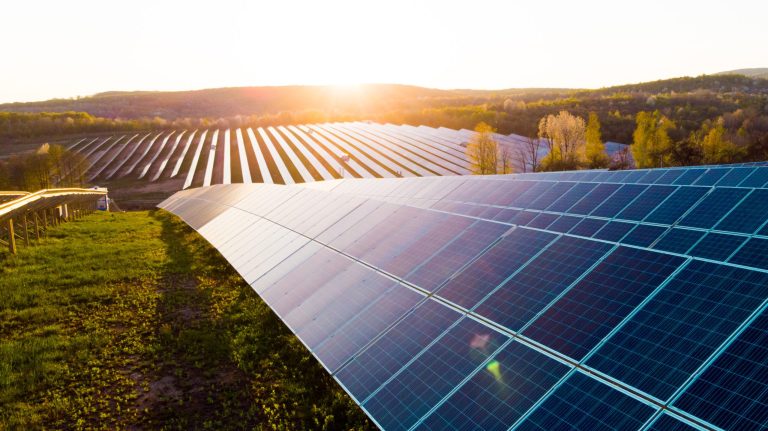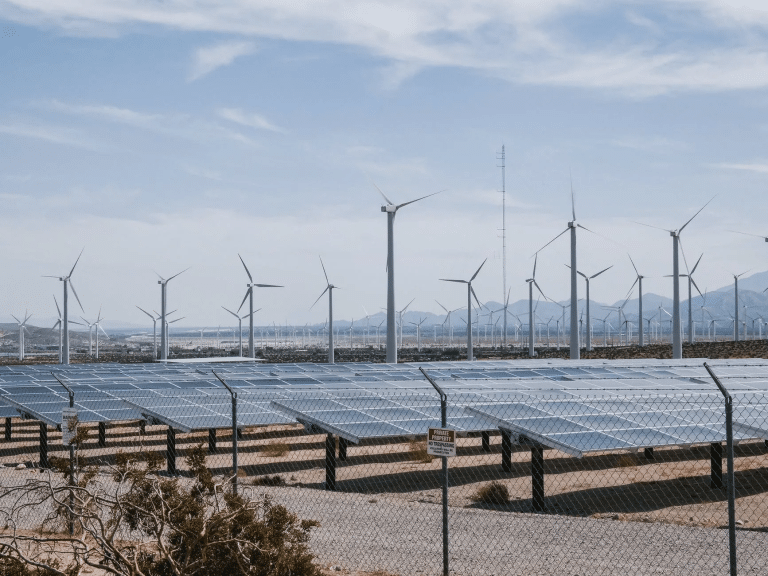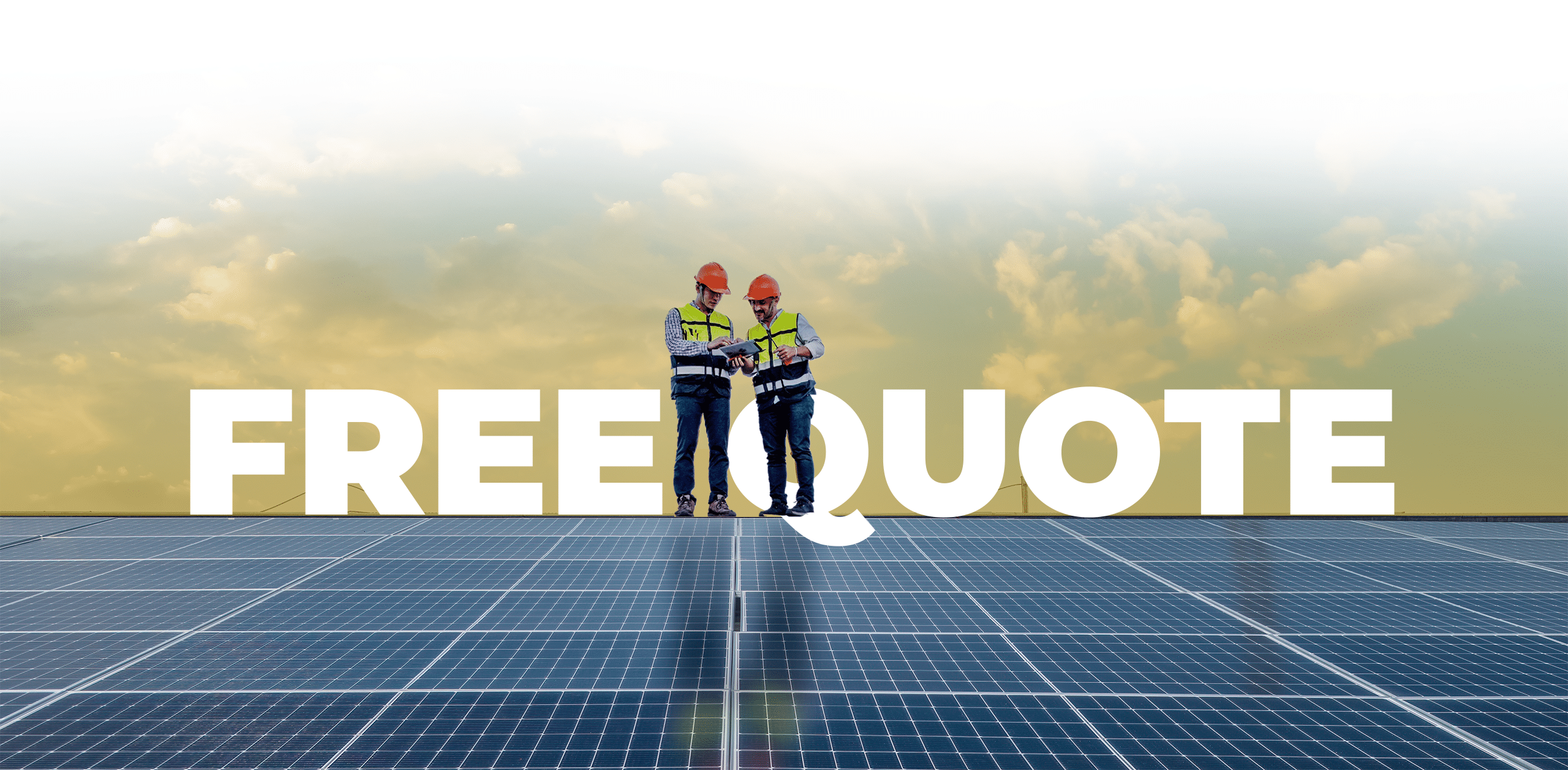Arizona Solar Tax Credit | Maximize Your Savings
A Brief Background
The Residential Clean Energy Credit, often known as the Solar Tax Credit, allows you to deduct up to 30% of the cost of your solar energy system from your federal taxes. By covering the cost of domestic solar installation, the tax credit aims to encourage more households to install solar, increase investment in the solar industry, and speed up the rate of solar investment and innovation.
The Residential Clean Energy Credit is a legally sanctioned and subsidized solar tax credit similar to a 30% discount voucher for residential solar systems. The Residential Clean Energy Credit can greatly reduce or even eliminate the federal taxes you would have owed in the year you install solar panels.
The Residential Clean Energy Credit is the current name for the solar tax credit created by the Energy Policy Act of 2005 and previously known as The Investment Tax Credit (ITC).
Therefore, it was a popular topic. According to the Solar Energy Industries Association (SEIA), the ITC has helped the U.S. solar industry grow by more than 10,000% since its adoption in 2006.
The Inflation Reduction Act of 2022 rebranded the ITC as the Residential Clean Energy Credit, increased its value to 30 percent, and extended the deadline to December 31, 2034.

Qualification for the Arizona Solar Tax Credit
To be eligible for the Federal Solar Tax Credit, you must build an electricity-generating household solar energy system, such as solar water heaters or a solar photovoltaic (PV) system. The Federal Solar Tax Credit is available for solar water heaters that use the sun’s thermal energy to heat water and solar photovoltaic (PV) systems that convert the sun’s light energy into electricity.
- Solar Panels (Photovoltaic Systems)
Solar panels, also known as photovoltaic (PV) panels, are flat, window-like structures that convert photons of sunshine into electricity. Solar panels, which are available in monocrystalline, polycrystalline, and thin-film versions, can significantly reduce your electricity expenditure. - Solar Heating Systems
Solar water heaters are a cost-effective method for heating water in the home. Solar water heaters utilize the thermal energy of the sun to heat the water in your home. There is a multitude of designs available, including solar collectors and storage tanks.
Benefits of Installing a Solar System in Arizona
- Sustainability
Solar panels contribute to the creation of a resource-conscious, energy-efficient, and self-sufficient home. - Cost-Savings
Monetary benefits and electricity bill savings are two of the most persuasive arguments for going solar. - Environmental
Selecting renewable electricity sources for your home is an excellent method to reduce your carbon footprint. Each kilowatt-hour (kWh) of solar energy produced will greatly reduce emissions of glasshouse gases such as carbon dioxide (CO2) and other hazardous pollutants such as sulfur oxides, nitrogen oxides, and particulates. Solar also reduces water consumption. - Enhanced Property Value
A solar energy system will increase the value of your home in a manner comparable to that of a renovated kitchen.
Choosing the Right Solar System for Your Home or Business
You should use caution while purchasing solar panels for your home. Here are seven crucial considerations to keep in mind.
1. Temperature Tolerance
This refers to how well a panel functions when exposed to heat. In general, the temperature coefficient of most solar panels ranges between -0.2% and -0.5% per degree Celsius (°C).
Nonetheless, some panels may withstand higher temperatures without experiencing a major performance decrease. Look for solar panels with a high level of thermo-tolerance since they will be better able to retain optimal operational efficiency in hot climes.
2. Quality
When it comes to solar energy, it’s important to use high-quality panels to get the best results. Typically, a 25-year warranty demonstrates the manufacturer’s trust in their products.
It is important to do regular maintenance and upkeep on your solar panels to make them last longer and work better. This usually means cleaning the panels regularly, replacing broken parts, and keeping an eye on performance indicators like shade or snow coverage.
If you take care of and maintain your solar panels regularly, they could be a reliable source of energy for decades.
3. Price
Solar panels are a substantial investment, so it is essential to choose them carefully. Solar panels have a lifespan of more than 30 years; therefore, it is essential to pick a system that will deliver optimal performance over time.
Do your research to choose the ideal solar panel system for your needs, and don’t let price be your only consideration. Inquire about the Arizona solar tax credit and maximize any savings available for your investment.
4. Solar Panel Type
There are numerous sizes and shapes of solar panels, each with its own pros and cons.
Monocrystalline silicon panels are the most effective type of solar panel, but they are also the most expensive.
Polycrystalline silicon panels are less efficient but less expensive.
Amorphous silicon, or thin-film, panels are the least efficient type of panel, but they are the simplest to install due to their low silicon content and compact size.
Regarding energy efficiency, there is no one-size-fits-all approach. The optimal solar panel for your home or business will depend on your budget and installation requirements.
5. Effectiveness
Various elements must be considered when selecting a solar panel system to evaluate its overall energy efficiency.
First, the amount of light the solar panel receives will determine how much electricity it generates and how well it will meet your energy needs. Finally, you must examine your own needs as a consumer.
6. Durability
Durability is a crucial factor to consider when selecting the best solar panel for your home or business for a number of reasons. A durable solar panel will last longer than a less durable one, so you will not need to replace it as frequently.
By choosing a strong solar panel, you can lower your overall carbon footprint because you won’t have to replace it as often, so you won’t have to buy and use more materials. Picking the most durable solar panel is a wonderful way to get the many benefits of this renewable energy source while contributing to the long-term preservation of the environment.
7. Size
When purchasing solar panels, it is essential to consider the panel’s size. Larger panels generate more electricity, which can be a significant benefit for those with high energy use. Additionally, they are typically more durable and simpler to install.
When selecting the ideal solar panel system for your home, finding a balance between panel size and cost is essential.Harvesting the sun’s energy and converting it into electricity to run your home or business is feasible anywhere, unlike other resources like oil, natural gas, or even wind. Incorporating solar panels into your home or business is a quick and easy way to reduce your reliance on the grid for power. Because of this, solar energy is an excellent choice for anyone who wants to cut energy costs.
Solar power is an appealing renewable energy resource. Solar energy is becoming more popular among Arizona homeowners and businesses. This is not only because it is good for the environment but also because solar panels are a good long-term investment in energy.
Are you interested in solar power? Get in touch with Sun Services USA. When it comes to installing solar panels, we are the industry leaders, both for commercial and residential properties. We will handle everything from start to finish, including the site survey, engineering, and utility applications! If you have questions or need help, feel free to contact our team today.







